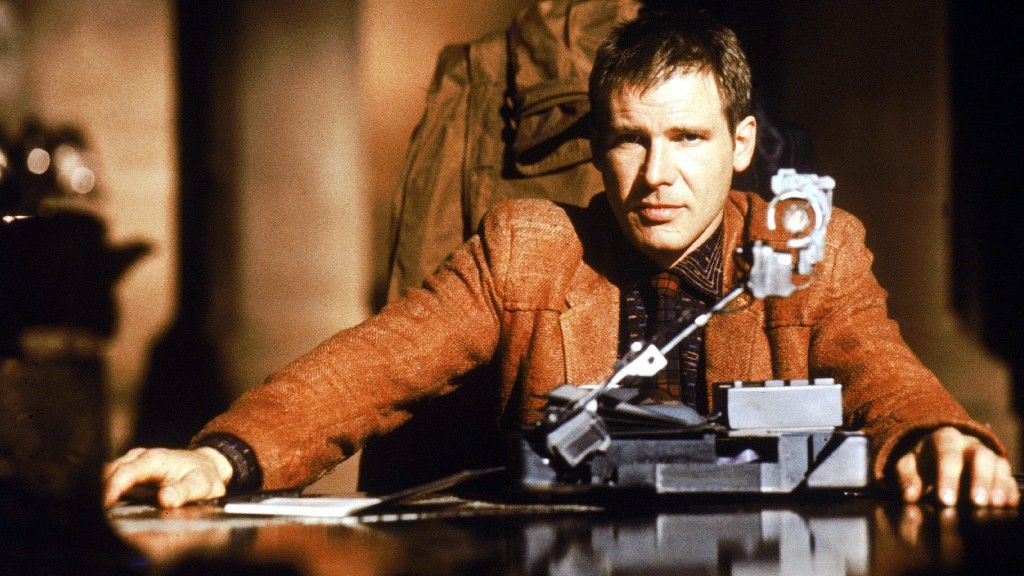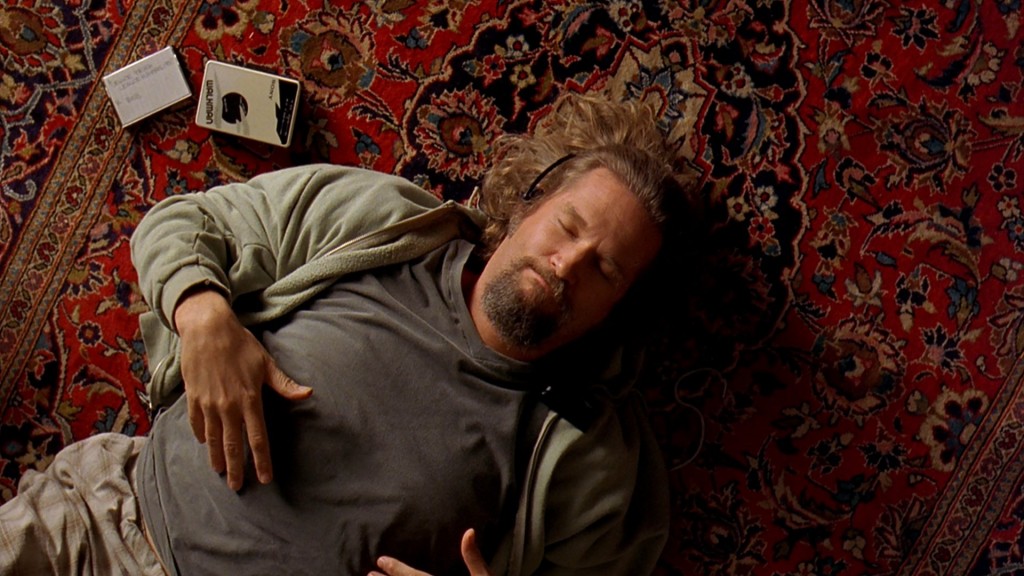There’s never been a better excuse to watch as many noir films as humanly possible than the cinephile community’s current favorite portmanteau. Deadshirt has decided to throw in with a month of essays highlighting some of our favorite works in the pantheon for Noirvember…
We’ve been having a lot of fun with these Noirvember pieces and I agree with Dom, Max, and David about noir being less a set of rigid rules and more of a feeling, a mood–a shadow across a frosted glass door, a wisp of cigarette smoke, the cloying scent of cheap perfume–but that mood came from somewhere, and that somewhere was in literature. Most early noir (and hardboiled) detective fiction came in the form of either short stories, or a story told over the course of several installments in a weekly or monthly magazine, but as the popularity of the genre grew, it eventually made the jump into novels. One of the most enduring writers of early noir is Raymond Chandler, who penned seven novels about smartmouth PI Philip Marlowe, and trouble Marlowe faces head-on during his investigations.
This fiction, which I highly recommend you read, is so iconic that when people think of the way noir detectives speak–all unique phrasing and clipped sentences–they’re unknowingly mimicking Chandler’s witty, quick prose. As you can imagine, this fiction has influenced plenty of other mediums, especially film. But its influence goes deeper into noir film than just the early years, stretching its long-legged way into modern filmmaking, and into genres you might not expect.
Chinatown (1974)
Evelyn Mulwray: Hollis seems to think you’re an innocent man.
Jake Gittes: Well, I’ve been accused of a lot of things before, Mrs. Mulwray, but never that.
Basically the 1970s’ answer to classic noir films, Chinatown follows Private Investigator JJ “Jake” Gittes (Jack Nicholson) on a case that hits all the sweet spots: a rich family with closets a-busting with skeletons, the darkest side of Hollywood opulence, and one hell of a femme fatale. Even from the very beginning, Chinatown reads like a Raymond Chandler novel. The whole thing starts when Jake is hired by who he thinks is the wife of the chief engineer of the water department to catch her husband cheating, but after Gittes gets the photos he finds out that the person who hired him to expose the engineer wasn’t really his wife, and, shortly after, the engineer turns up murdered. From there the plot launches into a seedy conspiracy involving the L.A. water department, real estate investment, and the engineer’s real wife, a wealthy and stunning women with secrets to match who goes by the name of Evelyn Mulwray (Faye Dunaway). Pretty soon Jake is uncovering information about some very powerful people, and though all it does is get him in trouble, he’s determined to solve the murder and the conspiracy surrounding it.
The plot itself is about as close you can get to a Chandler plot without directly adapting one of his novels: a private eye gets hired for what seems like a straight-forward case, and is almost immediately involved in something much more twisted and sinister than he originally planned. A wealthy family is usually involved, corruption is usually revealed, and a femme fatale turns the head of the PI, distracting him in the hopes of having her own needs fulfilled. Nicholson’s Gittes delivers clever and sharp one-liners, all with a wry half-smile on his face. He’s brusque, but that doesn’t bother him at all. As Philip Marlowe would say, “I don’t mind if you don’t like my manners. They’re pretty bad. I grieve over them during the long winter evenings.”
Chinatown is a gorgeous film, easily translating Raymond Chandler’s moody prose into expressive shots of the hills outside of L.A. and the city itself. Both Nicholson and Dunaway are marvelous as stoic, persistent PI and manipulative, yet vulnerable femme fatale, respectively. But it’s the ending that everyone always talks about, and that iconic line: “Forget it, Jake. It’s Chinatown.” If you can watch the whole film through without being spoiled for it (I’ve kept this mostly spoiler-free), then the ending will hit you in the stomach as hard as a brass-knuckled mob goon.
Blade Runner (1982)
Replicants are like any other machine: they’re either a benefit or a hazard. If they’re a benefit, it’s not my problem.
Blade Runner was adapted from a novella by pillar of sci-fi literature, Phillip K. Dick, called Do Androids Dream of Electric Sheep?. Blade runner (think future detective) Rick Deckard (Harrison Ford) is tasked with hunting down four robot slaves, called replicants, who have escaped their lives of servitude to come to Earth and find their creator, supposedly to kill him. But Do Androids Dream of Electric Sheep? is not a noir story, not really. It’s more of a philosophical meditation on the purpose of man and a cautionary tale about consumerism, a fairly straightforward science fiction parable. And while Blade Runner takes the plot, character names, and some ideas from Do Androids Dream of Electric Sheep?, it owes a great deal of its tone, character motivations and behavior, and detective tropes to Raymond Chandler’s Philip Marlowe.
Blade Runner is a great film, full of striking visuals and moving performances, all grounded in one of the most basic questions about the human experience: What exactly makes a human, human? It is, in short, a hell of a good movie. But Blade Runner has a problem with women. More specifically, Blade Runner has a problem with female sexuality, and the masculine attraction to that sexuality. And while Blade Runner takes so many great cues from Chandler novels, this is a cue carried over from noir literature, too. Both female replicants are depicted as sexual; Zhora has taken up exotic dancing with a snake (hello phallic symbol) and while Pris is generally treated by the narrative as more childlike and innocent, that innocence is highly sexualized. She’s dressed in a ridiculous leotard and all of her fight moves have sexual undertones to them. Though Pris’ sexuality is perhaps a hair less obvious than Zhora’s, she’s treated as the more dangerous of the two, and actually puts up a bit of a fight with Deckard, rather than just running away. Her sexuality is weaponized, her fighting style distinctly ‘feminine.’ Both women, it should be noted, meet extremely violent ends.
It’s in Deckard’s interactions with Rachael, though, that the intolerance of sexual attraction to femininity is most visible. I’m just gonna stick a TRIGGER WARNING for sexual violence here, just in case. Rachael, a secretary at the company that hires Deckard, is played as the love interest the entire movie, and sure enough, Deckard and she eventually sleep together. The thing is though, that the sex scene is preceded by an intense and violent confrontation between the two characters. Deckard seems both angry at her for his attraction to her (not something she can help) and willing to throw her around a little to show off that anger. It makes the scene that follows incredibly uncomfortable to watch. In The Big Sleep, this annoyance with female sexuality and anger at being attracted to it is on display as well, this time in Philip Marlowe, the book’s lead. In Marlowe’s case, it’s Vivian Reagan, the daughter of the man that hired him (sound familiar, huh?) that takes the brunt of Marlowe’s dislike. Though he’s obviously attracted to her, Marlowe is rude to her, bordering on mean. Later in the book, after a particularly frustrating moment for him when Vivian no longer wants to kiss him (because he’s literally interrogating her), Marlowe thinks, “Women made me sick.” Throughout the novel, Marlowe slaps various different women, either to get them to focus or to try and sober them up. Each time this happens, the narrative treats the violence as a corrective measure, as the right way to treat a frightened woman, as the only way to communicate to a women that she needs to calm down, right now.
Though noir literature (especially Raymond Chandler’s work) is filled with complex, interesting, flawed female characters, it is also filled with antiquated ways in which men treat women. Modern films can pick and choose which tropes and idioms from Chandler novels they want informing their noir film, so here’s hoping this particular theme is soon an extinct one, to be found in eighty-year-old books alone.
The Big Lebowski (1998)
Yeah well, you know, that’s just, like, your opinion, man.
Almost every character, plot detail, and weird criminal happenstance in The Big Lebowski owes itself to Chandler’s novels, the most obvious of influences being The Big Sleep. Read The Big Sleep, watch The Big Lewboski, and freak out and fall in love with the Coen brothers all over again, just like I did. I’m not the first person to talk about The Big Lebowski in the context of Raymond Chandler, but I would be remiss to not talk about The Big Lebowski in a list of contemporary movies all taking cues from Philip Marlowe, especially when this movie’s Marlowe is played (in the best casting I’ve ever seen) by Jeff Bridges. At its core, The Big Lebowski is essentially a post-modern retelling of the classic Chandler plot structure, just with a lot more bowling.
The titular Lebowski (just call him Dude, man) is mistaken for a much richer Lebowski, and when thugs come looking for gambling debts owed to them by the wealthy Lebowski’s trophy wife (and ruin Dude’s rug in the process), it’s up to The Dude to set things right. As always, the plot immediately complicates itself and dimwitted Dude is haplessly pulled into solving a kidnapping that he has no business being involved in. In The Dude, the Coen brothers have masterfully translated, and then twisted, Philip Marlowe into the perpetual bathrobe-wearing stoner we all know and love.
In The Big Sleep (and all other books featuring the detective), Philip Marlowe is a hell of a smart mouth. He’s constantly saying things that are, on the surface, rather stupid, but have lots of meaning buried within. People are constantly mistaking him for either just dumb or someone who doesn’t know when to shut up, which works for him, since it’s always better for people to underestimate him. The Dude, on the other hand, is just plain stupid. The problem is, most people mistake that stupidity for cunning. He’s got the opposite of Marlowe’s problem, and throughout the film The Dude starts to play into this assumption. He picks up phrases and words that he doesn’t really understand and then continually uses them in situations where he really shouldn’t. “In the parlance of our times,” being one of the most anachronistic of the lot. Where Marlowe willfully clouds his identity, The Dude cannot seem to get anyone to see who he really is. The movie starts with mistaken identity, and then continues to build on the myth that is The Dude, all while he tries in vain to clear his name.
The plot is twisty and turn-y, with plenty of distractions (“This is what happens when you find a stranger in the Alps!”) and complications, some of which seem completely unnecessary and others being absolutely essential to the mystery. The case itself is a little easy to solve, but it’s these complications and side missions that turn the otherwise traditional plot into a post-modern masterpiece, with only one real desire at its core: The Dude just wants his rug back. It really tied the room together, man.
(For a read that’s eerily similar to The Big Lebowski in tone and content, check out Thomas Pynchon’s excellent Inherent Vice.)




